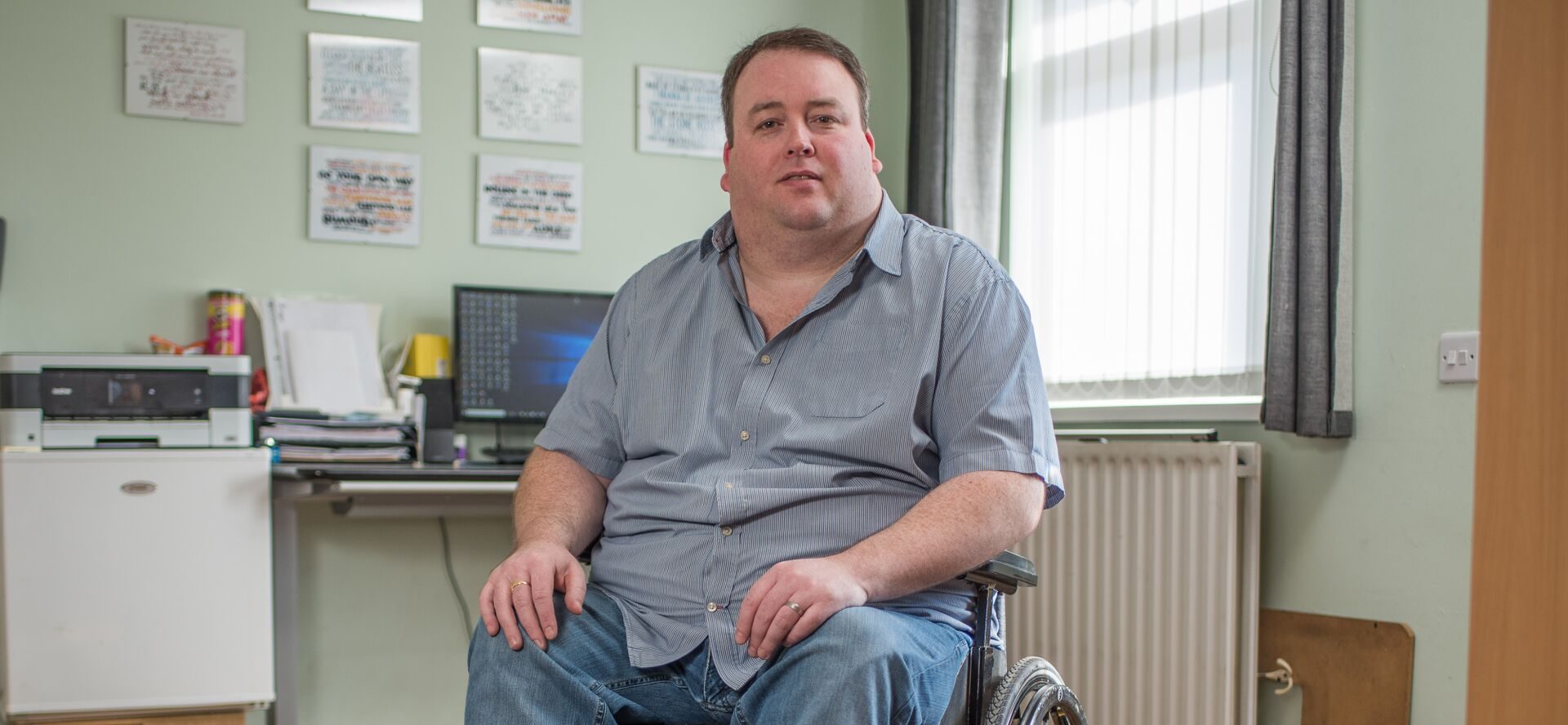The decades of conflict in Northern Ireland, known as ‘the Troubles’, led to thousands of civilian deaths and many more were left with serious, life-altering injuries.
What obligations do states have to support civilians living with disabilities in post-conflict settings? The situation in Northern Ireland reveals the struggle civilians often encounter in attempting to secure their disability rights from the state.
‘My Neighbours Didn’t Turn Up, So They Shot Me Instead’
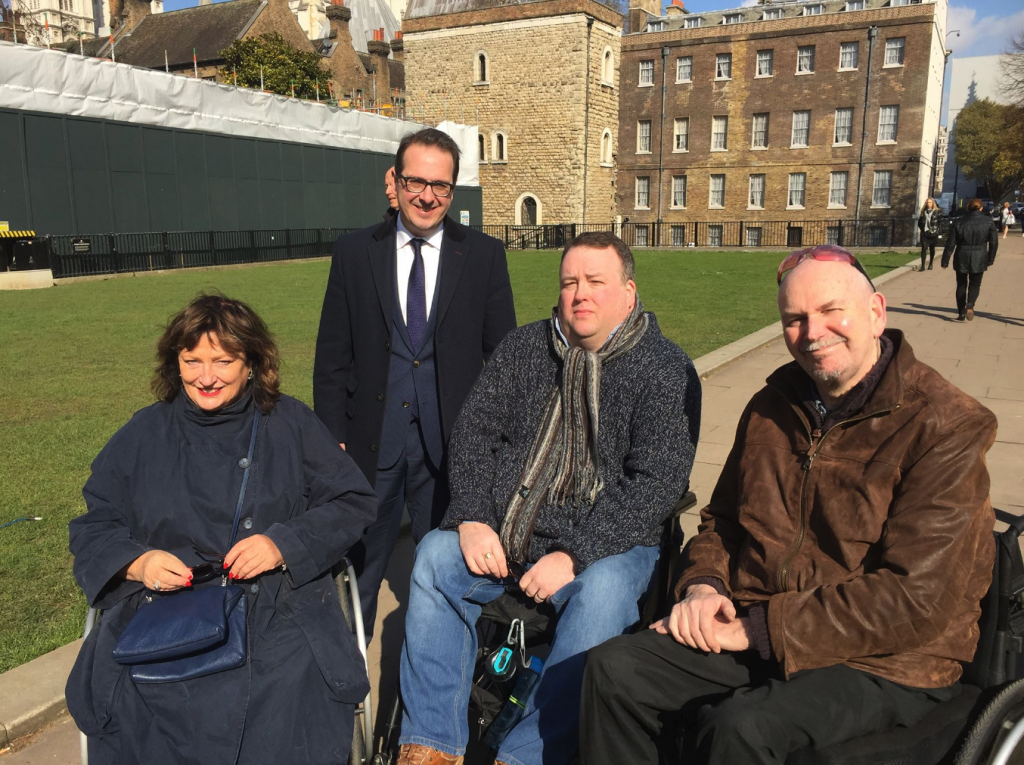 Paul, centre, in Westminster this month. Image Credit: Paul Gallagher / Twitter
Paul, centre, in Westminster this month. Image Credit: Paul Gallagher / Twitter
In January 1994, Paul Gallagher was shot by the Ulster Defence Association (UDA), a loyalist paramilitary group in Northern Ireland. “The UDA came to my home in west Belfast and they took it over. They lay in wait for my next-door neighbours who were Republicans,” said Paul. The UDA held Paul and his family hostage: “The neighbours didn’t turn up, so they shot me instead,” he said.
They came to my home and they took it over. They lay in wait for my next-door neighbours. They didn’t turn up, so they shot me instead.
Paul Gallagher
Paul was shot six times: he sustained life-altering injuries, including paralysis. He was just 21 at the time.
A few years after Paul was shot, he joined the Wave Trauma Centre, a group for people who were injured or bereaved during the conflict in Northern Ireland. Last week, he and other members of the group were in England to ask the Westminster government for the pensions they were promised. They also looked at other hospitals in England to see how people with similar disabilities are being treated.
So, Is There a Difference in Care?
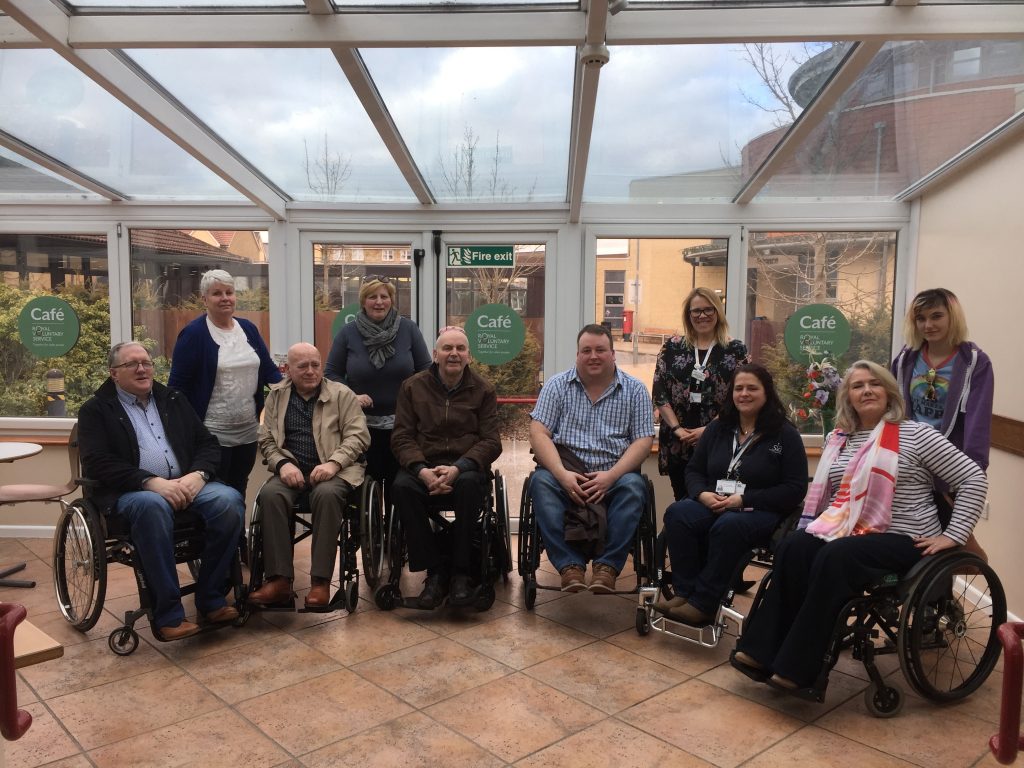
Image credit: Wave Trauma Group
The group say they want health care facilities that match the higher quality facilities in England, and they want a special pension. Many of them couldn’t get work as a result of their injuries and now live on benefits.
“While the stuff is adequate [in Northern Ireland] we just feel that the system itself could be commissioning better products and going for state of the art products to look after people,” Paul told RightsInfo. That is why members of the Wave Trauma Centre were in Stoke Mandeville to view the internationally-renowned spinal centre there. Like Paul, many of the victims of the troubles have paralysis.
“We feel there is an obligation on society to look after us as victims of the conflict and not just of ordinary crime. There’s a more urgent responsibility of the state to look after us” Paul said.
The majority of the Wave Trauma Centre’s members are pensioners in their 60s, 70s and 80s. At 45, Paul is one of its youngest members. Many of them are barely getting by on their current weekly allowance from the state and didn’t receive adequate compensation when they were initially injured.
We feel as though we’ve been left invisible and unrecognised.
Paul Gallagher, Disability Rights Campaigner
“People were very badly let down by the criminal injuries compensation scheme back in the day. It was a very adversarial court system. People were given a lot of bad legal advice”, Paul explained.
Paul believes it’s an issue of dignity, something fundamental to our human rights. “Back in the day [once you were injured] you were sort of left on the unemployment scrap heap. Your life was not great and you’re back and forth from hospital… That’s no way to leave people that were injured,” he added. “We feel as though we’ve been left invisible and unrecognised.”
Stormont or Westminster? A Long Battle
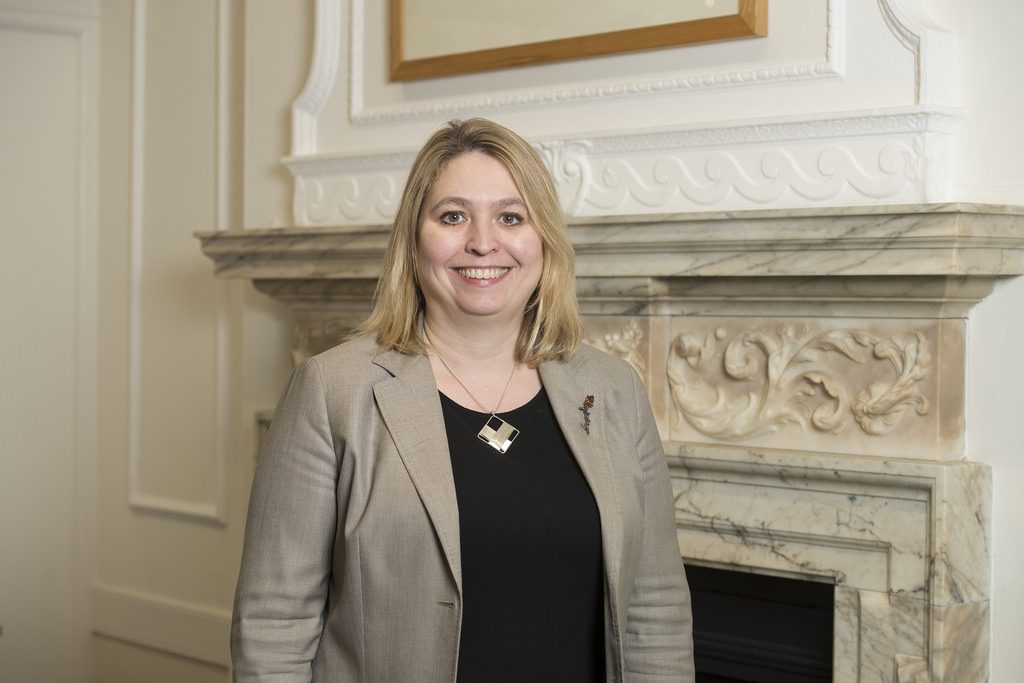
Northern Ireland Secretary Karen Bradley. Image credit: Number 10 / Flickr
“We’re trying to impress upon the UK government to live up their responsibilities to provide reparations to the victims of conflict,” Paul added.
Wave Trauma Centre has been campaigning for years on behalf of their members and the rights of approximately 500 people who were injured as a result of The Troubles. In 2012 they presented a petition to Stormont with 10,000 signatures. The petition argued that the injured victims of the troubles had been ignored, and asked for their promised pension. To begin with, these calls went unanswered.
Two years later though, in 2014, they managed to get the pension included in the Stormont House Agreement (Paragraph 28) but ultimately nothing came of it.
All these human rights violations happened under the UK’s watch… So, they need to take it on.
Paul Gallagher, disability rights campaigner
The former Secretary of State for Northern Ireland James Brokenshire has vowed to press ahead with a public consultation to deal with the legacy of The Troubles. This involves looking at the Stormont House Agreement to see if they can put mechanisms in place to support the victims, such as historical investigations and the truth recovery unit which the current Northern Ireland secretary, Karen Bradley, has carried on. The pension has been included, and Brokenshire insisted that it was a devolved matter.
Wave Trauma Group argue that this is a legacy issue, not a devolved one, and should therefore be taken on by Westminster. In parliament last week, Karen Bradley argued that she would not legislate for a pension for the severely injured or disabled because it would undermine the devolved government.
“All these human rights violations happened under the UK’s watch, when they were in control, not the local parties,” said Paul. “So, they need to take it on and that’s our argument.”
“The reason we’re in Westminster is because the Westminster government has stated previously that this is a devolved matter and it should be dealt with in Stormont, but there is no Stormont now,” Paul explained. “Westminster is the only game in town.”
Paul argues that it would be easy for Westminster to step in. They know what needs to be done, it’s just a matter of legislating for it. Westminster has so far refused, claiming that the issue of pensions for the victims of The Troubles is a devolved matter. There hasn’t been an assembly in Northern Ireland for 14 months. “This is an easy thing to do. It’s the right and moral thing to do but it is also, we think, a human right as well,” said Paul.
Westminster has begun looking to legislate for other issues such as Renewable Heat Incentives and Stormont’s Member of the Legislative Assembly’s salaries “but they won’t legislate on the likes of us,” Paul remarked. “The main problem is bringing it to the fore. A lot of the politicians in Westminster haven’t got a clue what is going on in Northern Ireland,” he added.
Disability Rights are Human Rights
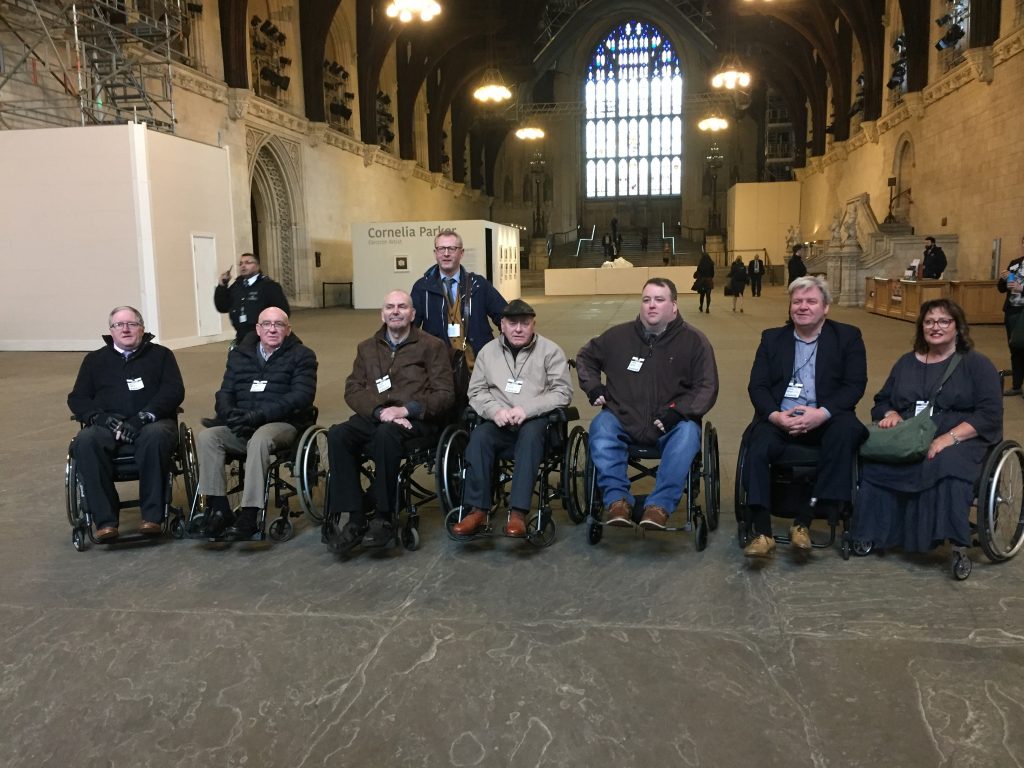
Image Credit: Wave Trauma Group
Having a pension and good health facilities is about “disability rights and it’s also human rights,” Paul told me.
Earlier this year, the United Nations Committee on the Rights of Persons with Disabilities expressed concern that the ‘living independently’ and ‘being included in the community’ are not recognised as human rights in UK law in a report on disability rights (page 20). However, in 2009 the UK ratified the Convention on the Rights of Persons with Disabilities, and one of the areas covered in this convention is the right to independent living. By ratifying this treaty, the UK became bound by international law to fulfil this obligation (and others) for people living with disabilities in its jurisdiction.
“We don’t want to be going begging,” Paul continued. “We went to Westminster and had to ask for help. That’s completely wrong. People should be coming to us and saying: ‘what are your needs and what can we do for you?’ It the opposite of what should happen” he said.
Although the UN welcomed the adoption of the Stormont House Agreement, it expressed concerns about “the quality and pace of the process of promoting accountability”. Nearly five years later, the 500 people with a serious physical injury from The Troubles still have no pension.
“If they make you invisible and forgotten about; then you’ll stay that way,” Paul said.

